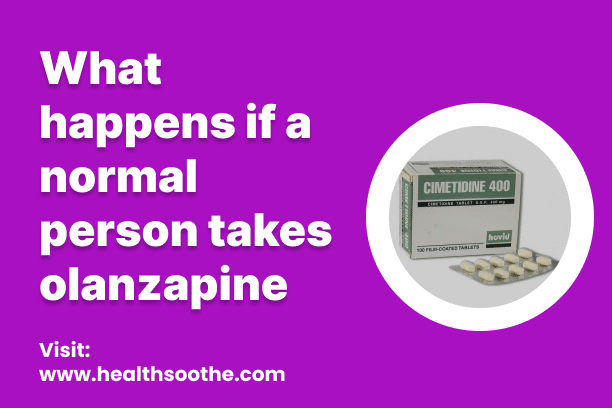Hands up if you’ve experienced anxiety and stress at some point during your life.
If your hand is up, you’re not alone.
These days, it seems as though everyone is anxious and stressed in some way.
Many people use the terms ‘stress’ and ‘anxiety’ interchangeably in common conversation.
But there is a difference and knowing the difference is critical to your health.
Do you have anxiety, or are you just stressed out? Read on to learn the difference between anxiety vs stress.
Anxiety vs Stress
Anxiety and stress are both common aspects of life these days. Unfortunately, most people will experience either one or both of them at some point.
The level of severity of anxiety or stress experienced may determine how detrimental they are to your quality of life.
Remember that stress and anxiety share many of the same physical and emotional symptoms. Some examples of these are tension, loss of sleep, high blood pressure and headaches. Despite this, they have very different origins.
It’s helpful to understand more about the differences between stress vs anxiety, as this will be useful in guiding your course of action. If you understand more about each of these, you’ll be more prepared to treat the specifics of what you’re experiencing.
Please read on to discover more about the differences. We’ll tell you about an anxiety disorder test and will share some useful tips when dealing with stress and anxiety.
Stress Response
In general, we can think about stress as a response to an external cause. This cause can be anything from an argument with a partner, a tight work deadline or a university exam.
An important thing to understand is that stress subsides once the situation has been resolved. Due to this, it’s critical to tackle these external actors as soon as possible. If you fail to address the stressors in your life, you run the risk of experiencing chronic, prolonged stress.
This kind of consistent stress can be very detrimental to your physical and mental health.
Breathing exercises, physical activity, simple self-care activities, and adequate sleep are all ways of managing and reducing symptoms.
What Causes Anxiety?
I’m sure you’ve asked, ‘do I have anxiety?’ at some point during your life.
Specific periods in our life will cause more anxiety than others.
The origin of anxiety is internal. It’s simply a person’s specific reaction to stress. Many people feel anxiety as a feeling of apprehension or dread that is persistent. The person will feel this unease and fear in a situation that isn’t actually threatening.
In other words, anxiety is your body’s overreaction to a situation that isn’t unsafe. Your brain perceives the scenario as a risk to your health or safety, when in fact it isn’t.
Unlike stress, anxiety persists even after the situation or concern has passed. In serious cases, anxiety will develop into an anxiety disorder. Anxiety disorders are the most common mental health diagnosis in the U.S.
Social anxiety, phobias, panic disorder, generalized anxiety, post-traumatic stress disorder are some examples of the variety of classified anxiety disorders. Each of these has its own set of symptoms and triggers
Good Stress
Remember that not all stress is bad stress.
Stress is a normal part of daily life that helps with productivity. No matter your age, stress is a common factor that affects people from all backgrounds. Some kinds of stress will have a positive impact on our lives.
Problem solving, resilience and learning to adapt are all examples of the way good stress can improve the way we behave.
Intense, recurring stress that remains unresolved over a period of time is when stress becomes a problem.
By the time you’ve been living with pervasive, untreated severe stress, you’ll start to notice the damaging effects.
In addition, stress is shown to aggravate other diseases and illnesses. It has an impact on our behaviour, the way we learn and on our overall health.
In the long run, serious stress can increase your risk of developing diabetes, substance abuse, heart disease. Over the long term, it can increase your chances of developing diseases like diabetes, heart disease, substance abuse, and anxiety disorders.
What is Anxiety?
So now we understand that stress is a response to the pressures we feel in daily life. When we feel stressed, our bodies release certain substances like adrenaline and cortisol.
Large amounts of adrenaline and cortisol in your system over time can lead to health issues like high blood pressure and depression. This is why prolonged stress is so bad for your overall health.
Another of the negative effects of too much adrenaline and cortisol is anxiety.
Another way of describing anxiety could be saying that it’s a feeling of being scared and apprehensive about a future event or situation. It is often manifested in physical problems, such as body pain, dizziness, shortness of breath and panic attacks.
While stress is a response to an existent stressor, anxiety is the continuation of the experience of stress that is out of proportion to the stressor. This response lasts well after the stressor has subsided.
Although they’re closely related, remember the following. Not all people who experience stress (most people), will experience anxiety.
It’s critical to properly manage your stress, in order to prevent anxiety from developing or worsening.
Stress Management
As we’ve said, managing your stress effectively will prevent anxiety and other health issues from having a detrimental effect on your life.
It’s important to educate yourself about productive strategies to manage stress.
What works for you, may not work for a friend. It’s critical to pinpoint the stress management techniques that work best for you.
It may take some trial and error to make this discovery. But it’s worth the work to create a stress-reduction toolkit that you can draw from in stressful situations.
Deep Breathing
The first is deep breathing. This is the simplest, yet effective way to feel calmer when stressed.
You can practice this strategy while you’re still calm. Inhale and count to four, then hold for four before exhaling for four. Repeat this until you feel more centred.
Mindfulness
The next strategy is to practice mindfulness. These days there are many apps that assist with mindfulness practice. However, some will recommend that the best way to practice mindfulness is to disconnect from the digital world and reconnect with the natural world around you.
For a specific period of time every day, see if you can do just that. Go for a walk outside and look around you at nature. Walk in the forest or on the beach and take in your surroundings.
Get Moving
Talking about walks, exercise is shown to be one of the most effective ways of coping with stress. Daily exercise will promote the release of feel-good chemicals in your brain.
Find a form of exercise you enjoy. Whether that’s running, swimming, dancing or simply taking the dogs for a walk. It’s important that you enjoy the kind of exercise you choose.
Exercise as a daily habit will improve your physical and mental health. Research shows that it’s an extremely helpful buffer from negative reactions to stressful events.
Journal Joy
Documenting the worst and best of your day helps you to sort through your challenges and focus on what went well.
Keeping a journal will help you to process your thoughts and experiences in a healthy way. Every day will have ups and downs. It’s important to process each day and to be grateful for the good things in our lives. A journal can help with this.
Creativity
You’ve probably noticed the rise in popularity of adult coloring books.
The truly work. It doesn’t matter whether you’re drawing in, making music, painting or writing poetry. Any creative outlet you enjoy gives your mind a break.
It gives you a chance to relax and engage with other parts of your brain that don’t get used as often.
The Next Steps
The negative effects of stress and anxiety are similar. Sleepless nights, lack of focus, irritability, exhaustion, rapid heart rate, muscle tension and headaches are all common side-effects.
These are all serious concerns. With symptoms that appear interchangeable, it can be tricky to know when to simply work on deep breathing and when to seek professional help.
Anxiety vs stress isn’t a simple concept. Both have similarities and both interact with one another.
Remember that anxiety is a sustained mental health disorder which is often triggered by stress. It doesn’t fade away once the ‘threat’ is mediated and can cause serious problems in all areas of life.
Please contact us to find out more about stress and anxiety. We’re more than happy to guide you through the treatment options that will suit you best.
Related reading
- 8 Recipes That Relieve Stress Thanks To Their Healthy, Nutritionist-Approved Ingredients
- When to seek a therapist? Do you think you need to consult a therapist?
- How Starting a New Business Affects Your Health







